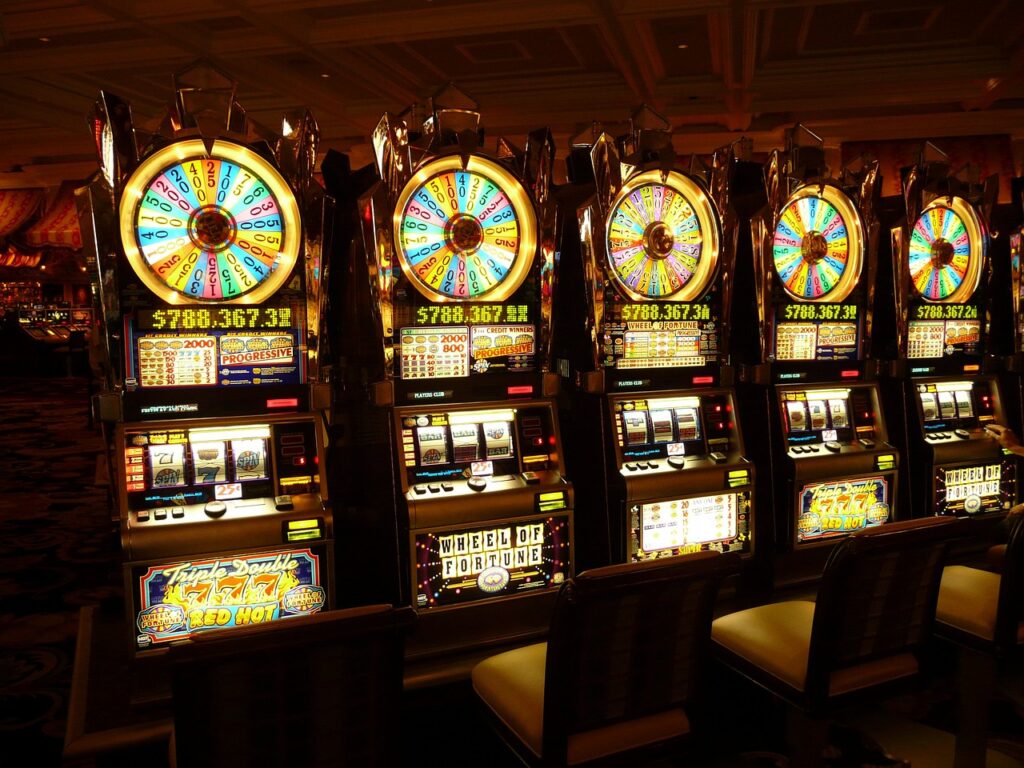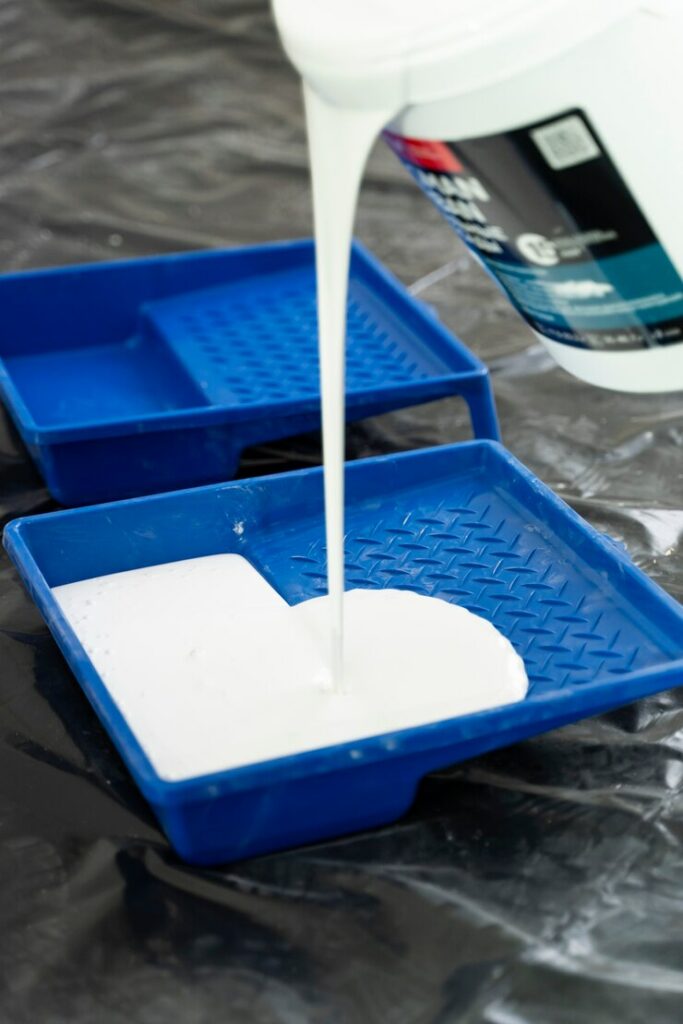20+ Years Experience
Specialist Addiction Rehab

Behavioural addiction is a complex and challenging issue that is often under-recognised but similarly as impactful as substance use disorders.
Compulsive engagement in activities can lead to negative consequences, here we will discuss the psychology, symptoms, different types of addictions and their treatments.
Support systems for individuals struggling with this condition are available and we can help those dealing with any co-occurring disorders.
Treatment for behavioural addictions typically involves therapy, medication and holistic interventions tailored to individual needs. Support systems and lifestyle changes are essential for preventing relapse and maintaining recovery from behavioural addictions.
For more information on behavioural addiction treatment, please make sure to contact our team today using the enquiry form provided.
Behavioural addictions, also known as addictive behaviour, refer to the inability of an individual to fight against their urge and persist in engaging in activities even when it brings negative results.
It shares features with substance addiction like chronic patterns or treatment response though physical dependence isn’t a factor here.
Such behavioural issues include gambling addiction, sex addiction, food-related habit disorders, and internet & gaming disorders, which can lead someone to other mental health disorders such as depression, anxiety and obsessive thoughts.
Treating these kinds of problems requires various treatments consisting of therapy sessions coupled up with medicines if needed together plus holistic interventions for improved outcomes.
Although similar traits are observed between drug use habits & behaviour-addicted inclinations. This includes onset period + development process yet physicial reliance is missing from the later one’s profile.
Behavioural addictions, also referred to as process addictions or process addictions, share common characteristics with substance addictions in terms of the detrimental effect on mental health and the need for expert treatment.
The cause of most addictive behaviours lies within the reward part of our brains, which can be affected by genetic make-up, family background and external factors like environment.
A brain chemical called dopamine stimulates certain receptors when a behaviour is performed giving pleasurable sensations but negative feelings are caused due to absence if it’s not repeated often enough.
Realising what causes one’s propensity towards acquiring an addiction will help them along with their friends/family recognise why seeking assistance is essential for recovery.
Popular examples include internet addiction, shopping disorder, gaming craze & compulsive gambling, all having adverse outcomes nonetheless requiring professional guidance.
Taking necessary steps such as identification of warning signs related to behavioural dependencies followed by treating them accordingly would significantly upgrade one’s psychological well-being.
At present, despite challenges in categorising other behavioural addictions differently from substance use disorders and impulse control disorders, it is clear that there are similar characteristics between them.
This fact has been acknowledged by the DSM-V Task Force who suggested transferring pathological gambling from an impulse control condition to a classified addiction and related issues group.
It is hoped this understanding of similarities can facilitate more effective treatments for those suffering with these kinds of addiction problems.
To learn more about impulse control disorder, please make sure to speak to us today. We can help you control impulses in your everyday life.
Behavioural addiction can have far-reaching impacts on both physical and mental health, as well as lead to withdrawal symptoms similar to those experienced when dealing with substance abuse.
Indications of such an issue may include separation from loved ones, financial hardship, deterioration in overall well-being or erratic behaviour.
Detoxification is also relevant for treating behavioural addiction problems.
During this process, individuals might encounter the same type of withdrawal effects that are associated with chemical detoxifications.
Mental health people struggling with behavioural addictions often experience depression and anxiety disorders caused by obsessive thoughts along with a decline in their social connections which potentially result in academic issues too.
Physical repercussions due to behaviours related to dependency vary depending on each individual’s circumstances, but could ultimately be damaging even leading to serious illnesses down the line if left untreated.
It’s important for family members or friends witnessing these changes to seek help before reaching crisis points Worsening matters.
The negative consequences of behavioural addictions on physical and mental health can be serious, with potential impacts such as depression, obesity and even social withdrawal.
Physical implications may include sleeping issues, changes in weight or diet, and lack of exercise, which could lead to other illnesses.
It is essential to receive professional assistance for managing the repercussions that accompany these conditions.
Studies have noted a connection between addiction-related behaviours and emotional disorders like anxiety about body shape etc., thus making recognition of the possible effects vital when seeking help from specialists.
Behavioural addiction can have a very negative impact on one’s relationships. It often leads to secretive behaviour, mood swings and a lack of trust between parties in the relationship.
This kind of compulsion also triggers emotional instability, destructive actions as well and psychological abuse, which are all damaging to personal interactions.
Financially speaking, it may create major issues such as debt or legal matters related to possessions loss.
Behavioural addictions leave their mark in terms of impairing social skills too: distressful feelings like guiltiness or anxiety emerge alongside a lowered capacity to be socially engaged due to prioritising addiction over other connections.
Even worse when using addictive behaviours as an unhealthy way out, resulting just Separation from others leading ultimately toward loneliness and isolation states.

Recognising the signs and symptoms of behavioural addictions is vital as they can have serious effects on your health, along with personal and professional life.
There are various types of internet/gaming disorder, gambling disorder, shopping addiction, food dependency and sexual addiction – understanding which one you may be struggling with can help you seek treatment more efficiently.
While some kinds of behavioural addictions like internet or video game addiction have been thoroughly researched, there might be certain others that could take time to identify – but all require similar approaches while treating them regardless of whether it’s widely recognised or not yet familiarly known.
Internet addiction and gaming disorder is a compulsive use of the internet or video games which results in social withdrawal and can have detrimental effects on one’s physical health.
Internet addiction can range from a social media addiction to problem gambling online, a phone addiction and more.
This addiction may cause an individual to focus primarily on playing their game, leading to withdrawal symptoms if they cannot partake in it while losing interest in other activities regardless of its negative consequences.
Excessive engagement with online gaming has been linked with people seeking help due to this issue as well as cases where individuals have neglected nutrition and sleep up to fatality level intensity.
Physical damage associated with indulging too much in video games includes poor fitness levels coupled with sleeplessness.
All resulting components could also weaken academic performance at school along with threatening potential job roles plus economic stability alike.
Addressing underlying causes combined with therapy sessions and medication are needed alongside holistic support methods aiming towards overall well-being when treating such situations related largely based around computer overuse/video game obsession.
Gambling addiction is characterised by an uncontrollable attraction to wagering, leading to a significant expenditure of money on betting games such as casinos, sports and racing.
The consequences can be life-altering – financially devastating as well as potentially causing legal difficulties.
Also, relationships may suffer because the gambler can become emotionally distant or untrustworthy due to their dependency.
Studies have shown that adult pathological gamblers who are smokers now or were in the past experience more powerful cravings for gambling than those without any smoking history do.
Also, individuals with problem gaming habits and alcohol consumption tend to express greater levels of difficulty within their psychosocial surroundings compared with non-alcohol users struggling from excessive betting activity.
Treatment for gambling addictions normally involves counselling sessions combined with medication plus holistic therapies aiming at tackling both the habit itself and underlying mental issues if any exist alongside it (e.g., depression).
For more information on how to seek treatment for a gambling addiction, please make sure to contact our team.
Shopping addiction is a type of obsessive-compulsive disorder. Obsessive buying disorder (or shopping addiction) is a condition in which an individual compulsively buys items that they don’t need or can’t afford.
Its indicators include emotional distress, preoccupation with the activity of shopping itself and financial struggles.
It may also cause people to feel guilt/shame and hoard objects. Mental disorders such as utilising retail therapy for negative feelings (sadness etc.) and materialism stemming from exposure to advertising often fuel this behaviour too.
Getting professional help via treatment centres allows individuals afflicted with compulsive spending disorders to understand what lies at its core while equipping them with strategies on how best to manage their purchasing habits over time.
Such treatment options commonly involve engaging multiple forms of therapies, both medicinal & holistic, so as to tackle both the underlying condition along any accompanying mental well-being problems present throughout the recovery process.
For more information on compulsive buying disorder and other obsessive-compulsive disorder problems, please make sure to contact our team.
Mental health can be heavily impacted by food addiction and an eating disorder, causing disturbances to regular eating habits along with potential weight fluctuation.
Food addiction and eating disorders are both behavioral addictions.
These conditions are linked to psychological or physical factors resulting in a complex relationship between the individual’s body image and their consumption of food.
The consequences of this maladaptive pattern may extend far beyond what is visible on the surface.
Severe impacts occur both physically and mentally if left untreated, that’s why it is necessary to recognise symptoms associated with these issues such as recurrent gain/loss in weight so appropriate treatment options including therapy sessions, medications and holistic approaches can be implemented for long-term resolution.
Individuals who develop sex addiction often do so as a way of coping with low self-esteem or seeking an escape.
Sex addictions are marked by devoting excessive amounts of time to the behaviour, consistently failing to reduce it despite trying and experiencing increasing tolerance, withdrawal symptoms if deprived of engaging in such behaviours, and negative consequences on their mental health and social life.
Porn addiction is one form which involves continually watching pornographic content regardless of when or where they may be.
When managing cases related to sexual addictions, there needs to be attention given not only to treat the underlying addiction but also any other associated mental problems that could have precipitated this addictive behaviour in order for effective recovery treatment outcomes.
Treatment typically consists of therapy approaches focusing on addressing issues around why individuals engage in these activities along with medication interventions when needed plus holistic methods such as relaxation techniques etc.
For more information on sexual addiction and how to treat this, please speak to our experts today. Compulsive sexual behavior and porn addiction
can be damaging to personal relationships and your sexual health. We would recommend reaching out for addiction treatment as soon as possible.
Treatment for behavioural addiction typically uses therapeutic approaches such as cognitive-behavioural therapy, motivational therapy and family counselling.
These are often supported by medication along with holistic interventions to address any underlying mental health disorders that may be present.
Every individual’s journey is unique so a personalised plan should include the type of therapy chosen, medications prescribed and duration/stages of treatment as well as lifestyle elements like dieting or exercising regimens which can help in managing triggers for addictive behaviours long-term.
This comprehensive approach helps individuals tackle addiction on multiple fronts while understanding what factors might have contributed to it. Thus paving the way for sustained recovery from their addictive disorders.
When it comes to treating behavioural addiction, therapeutic techniques focus on recognising triggers and addiction patterns as well as shifting towards healthier behaviour.
Cognitive behaviour therapy (CBT) is a popular short-term therapy used in dealing with these types of addictive behaviours by teaching individuals how to adjust their thoughts and actions which are leading them down the wrong path.
Motivational interviewing – another form of Motivational therapy – can help those struggling with behavioural issues build enough motivation within themselves to make needed changes.
This approach encourages people to realise conflicts between current habits and desired goals.
Models such as Dialectical Behaviour Therapy (DBT) or 12-step programs often benefit from targeting psychological sources behind addictions while providing useful tools for avoiding relapse episodes.
By pinpointing potential triggers along with particular habitual behaviour patterns, therapies may lead to successful lifestyle modifications eventually promoting better outcomes overall when managing behavioural addictions.
Behavioural addictions, though not having officially approved medicines for their general treatment, can still be tackled with the help of medication prescribed specifically for drug addiction therapy.
Cognitive-behavioural therapy and group counselling are two predominant modalities when it comes to treating behavioural addictions.
They may need support from other interventions like holistic methods or medications that treat underlying mental conditions.
The idea behind holistic therapies is to create an equilibrium among mind, body and spirit in order to deal with behavioural addiction at its roots while promoting overall well-being.
Examples of these healing interventions include mindfulness meditation exercises such as yoga or acupuncture combined with art/equine therapy sessions if necessary.
It is crucial then to recognise how beneficial medicine combined with alternative treatments can result in tackling behavioural addictions effectively by looking out for suitable options available out there.
Support groups exist to help individuals overcome behavioural addiction, as they create a sense of community and provide resources for overcoming cravings and triggers.
Family members also serve an essential role by providing emotional support, accountability and understanding.
They too can experience great challenges due to the loved one’s addiction. Friends offer motivation along with inspiration on the journey towards recovery.
Hence forming part of successful networks aimed at tackling this issue effectively.
In summary, such systems act as important beacons throughout every step taken toward conquering addictive behaviour.
Family and friends can play a major role in helping someone recuperate from behavioural addiction.
They should familiarise themselves with the condition, provide emotional backup, and create an environment that is safe for healing to take place while ensuring professional help has been sought out.
Staying tolerant yet understanding will be beneficial as well as providing encouragement towards joining support groups or therapy programs.
Knowledge regarding this issue boosts the aid given by educating oneself on it.
Being aware of any possible triggers along with praising successes accomplished helps prevent relapse too – so long-term recovery can be achieved with such involvement of loved ones!
For those looking to recover from behavioural addiction, attending a support group can be beneficial.
Addiction treatment specialists or therapists specialising in this field are the best sources for finding these groups.
Online directories of relevant organisations may help narrow down a search and community service providers who offer such programs should also be contacted if available locally.
The advantages offered by joining one of these peer-run collectives include an inclusive sense of belonging, getting guidance on education matters related to recovering addicts and better managing difficult emotions, as well as receiving accountability through companionship with similar experiences found only among peers afflicted similarly living out their recovery processes together.
They act as safe spaces where stories can be exchanged that give moral assistance towards long-term sobriety while providing useful advice concerning strategies to cope with cravings & triggers associated with addictive behaviour patterns.
In order to prevent relapse and maintain recovery, it is essential for individuals to understand the importance of identifying and managing triggers, making lifestyle adjustments, and practising self-care.
To avoid potential setbacks in one’s progress toward sobriety while promoting overall well-being, recognition and regulation of these factors are key components.
Achieving lasting positive outcomes from addiction treatment requires making necessary changes such as reducing or removing temptations that lead to addictive behaviours.
Obtaining assistance through family members/friends or support groups. Participating in healthy activities like hobbies/stress management techniques.
Structuring daily life according to a specific routine schedule can enhance chances of successfully maintaining well-being away from substance abuse risk factors.
Active engagement with treatments targeting the root cause(s) behind an individual’s alcohol abuse and drug addiction increases the likelihood of achieving the desired result: sustained long-term recovery without returning back into addictive habits.
Emotional & mental issues should be dealt with by qualified medical professionals who may help develop bespoke coping strategies needed when faced with pressures leading up to temptation-related scenarios likely associated with cravings suffered during the early stages after giving up dependency upon substances.
It is essential to take note of and successfully handle potential triggers that may lead to a relapse in behavioural addiction.
Such triggers include stress cues associated with the addictive activity, contact or exposure to it, as well as negative emotions felt by those struggling with this condition.
To effectively manage these factors, one should come up with coping strategies such as developing a relapse prevention plan which can then be aided by building strong support networks and engaging in self-care activities like exercise, meditation, relaxation techniques, etc.
Doing so will help individuals maintain long-term recovery without experiencing any slip-ups into their old patterns.
It is important to make lifestyle changes and participate in self-care activities when trying to avoid relapse from behavioural addiction.
Examples of these necessary modifications include incorporating exercise into one’s routine, eating healthily, developing a strong social support system, taking part in enjoyable hobbies that bring contentment as well and managing stress levels.
By implementing such alterations and setting aside personal time for things like getting enough restful sleep or having nutritious meals can help maintain recovery while also enabling individuals to manage triggers efficiently long term with minimal risk of relapsing.
Individuals who struggle with behavioural addiction may find it hard to manage any coexisting conditions, such as substance abuse or psychiatric issues.
In these cases we speak of a dual diagnosis. This is when somebody is trying to overcome an addictive behaviour but also has alcohol or drug addictions plus mental disorders at the same time.
For this reason, residential treatment centres in London, Manchester, Scotland and Wales are usually recommended in order to provide comprehensive care for healing and recovery from both behaviorual and drug addictions simultaneously.
The approach applied for treating people with combined diagnoses like this often involves dealing not only with their behavioural problems but mainly targeting the underlying reasons that led them to suffer mental illness while still being addicted to substances too.
For individuals with co-occurring disorders, dual diagnosis treatment is key to successful recovery.
This approach incorporates therapy, medication and lifestyle changes as well as support groups in order to address both the substance abuse issue and any underlying psychiatric disorder.
Allowing patients a role in decision-making regarding their own goals of change empowers them towards achieving long-term sobriety.
Unaddressed mental conditions are likely contributors to relapse, which is why it’s essential that these illnesses be addressed alongside behavioural addiction while providing comprehensive care for an optimal outcome and overall well-being.
In order to achieve a successful and sustained recovery from behavioural addictions, it is important to consider mental issues such as major depression, bipolar disorder, obsessive-compulsive disorder (OCD) or attention deficit hyperactivity disorder (ADHD).
Comprehensive treatment plans which identify the root causes of addiction along with any concurrent psychiatric disorders are needed in order for individuals to manage their triggers.
Medication combined with holistic interventions can be useful aids when treating addictive behaviours alongside their underlying psychological source.
This approach will ensure the best chances of recovering successfully and maintaining long-term sobriety.
Various types of therapy may also aid by providing practical strategies enabling those affected to overcome these harmful habits more efficiently.
Lastly, seeking suitable support systems via professionals trained in dealing specifically with substance abuse should always be considered an essential part of creating a bespoke yet all-encompassing plan that tackles both aspects comprehensively simultaneously.
If you or a family member are struggling with addictive behaviour, do not hesitate to seek assistance.
Our rehab centre provides many treatment plans and services that will help individuals tackle their addiction and strive for long-term sobriety.
A knowledgeable group of experts is committed to offering detailed care adapted specifically for each individual’s needs as well as his/her personal circumstances.
Get in touch today to find out more about the available solutions and get on your way toward developing a healthier life full of joy!
We have rehab centres in Oxfordshire, Manchester, London, Scotland and Wales, so please do not hesitate to contact us.
Despite the harmful effects on an individual’s health and well-being, addiction behaviour involves intense urges to participate in a certain activity or use of a particular substance that even causes changes in brain functioning.
This type of compulsory engagement is characterised by cravings, as well as numerous adverse outcomes.
Forming habits is something done out of convenience or for pleasure, whereas addiction becomes an obsessive behaviour that can negatively impact our ability to think and choose.
Addiction involves relying heavily on a particular substance or activity so much that it surpasses any adverse consequences we may face.
Some of the most common behavioural addictions include gambling, sex, food and shopping addictions.
Internet addiction disorder and gaming disorders can be very damaging if not addressed.
These forms of addiction have the potential to disrupt a person’s life significantly.
The primary forms of treatment for behavioural addictions usually include cognitive-behavioural therapy, motivational therapy, family counselling and sometimes medication.
Holistic interventions are also beneficial in managing such afflictions.
When seeking the triggers for behavioural addiction, it is important to reflect on one’s individual background of substance use and character traits while taking note of any external stimuli that can evoke emotional distress such as people, places or sounds.
There are a range of other services that we can provide. Have a look at the list below for more information:














We Aim To Reply To All Enquiries With-in 24-Hours